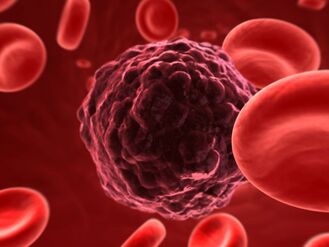|
With the big ‘C’ being the disease that diagnosis one out of every two pets, we as pet guardians must be seeing the trend. The interrelationships between elements of the immune system, the environment and other biological processes is something to note. Of course, epigenetics and nutrigenomics play a major key role, but something that I feel is extremely overlooked in the pet industry is how well our pets actually detoxify toxins. Prescription and flea/tick medications, as well as vaccines are prescribed without even so much as any kind of liver or lymphatic support. These are all VERY taxing on the immune system. Pair that with a processed diet, and of course cancer rates are 1 in 2! Case in point: “This case study was on a 6 year old, mixed breed, spayed female dog with suspected acute liver toxicity secondary to Trazodone administration. Trazodone had been prescribed to this particular dog intermittently previously for separation anxiety, but the dog had an event of raisin ingestion and needed ongoing medical care. Due to the anxiety of ongoing care, they were administering Trazodone at least 5 out of 7 days. Initial treatment for the raisin ingestion included induced vomiting, fluids, and charcoal. Bloodwork was done 48 hours later and the ALT (a liver enzyme) was elevated. Four doses of Trazodone were given during that 48 hour period. The dog was then hospitalized for fluid therapy and monitoring. They rechecked the bloodwork after another 48 hours passed and the dog's ALT was even higher. Since the dog wasn't exhibiting signs of liver failure, they discharged the dog and sent her home on liver support supplements. The next day, they checked bloodwork again and the ALT was still climbing higher. 3 weeks after initial admission, the ALT was still elevated, the GGT (another liver enzyme) mildly increased, and the dog tested negative for leptospirosis. 4 weeks after the raisin ingestion, the ALT went up to 996 (normal is up to 125) and the other liver enzymes (GGT, ALP, and AST) were all elevated. 6 weeks after presentation, the ALT was 1177, and an ultrasound guided biopsy of the liver was performed which was non-specific. The Trazodone was discontinued due to concern of possible liver toxicity. 2 weeks after stopping the Trazodone, the liver enzymes returned to normal. Though the probability of liver toxicity from sporadic use of Trazodone (during fireworks, thunderstorms, a long journey) is low, this is an important lesson that consistent monitoring for pets on medications is important. Thankfully, they were doing bloodwork on this dog regularly, otherwise continued use of Trazodone could've resulted in a much worse outcome. I recommend all pets that are on long term medications get lab work every 3 months, but talk to your veterinarian about potential side effects of medications and how to best monitor your pet.” Dr. Judy Morgan, DVM. The way in which our pets detox is extremely overlooked even in the holistic health community, and sure, detoxification happens daily, and our detoxification organs are equipped to do that, but how well they detox on a much deeper level is another story, with ‘obstacles to cure’, such as mycotoxins, homotoxins, mycoplasmas, etc. The Lymphatic system is a very imperative detoxifying organ, it is the only way out for most homotoxins, has interactions with the ECM (Extra-cellular matrix), gut, liver and kidney, and is the only way out for most toxins. Remember, the body is a flow-system, so making sure the lymphatic drainage is working properly is key to always getting the root of a problem. Diseases have a very distinct progression, and the right lymphatic drainage protocol for the right stage of the disease must be ensured. Yeast overgrowth is so common it’s scary, a sure tale sign that there is toxin overload in the body. There have been medical links to cancer and candida, the book ‘Cancer is a Fungus’, by oncologist Dr. Tulilo Simonoini MD, states that cancer can only develop when there is a candida or fungal pattern. To me, that basically once again boils down to the bodys’ ability, or rather inability, to detox well. Having a high toxin load will also interfere with your pets’ anti-aging pathways, the activation of key anti-aging molecules known as silent information regulators (SIR) act across multiple cellular pathways that regulate gene expression, aging, DNA repair, metabolism and apoptosis (damaged cell death). Which makes it a lot harder for the body to do when it is laden with a heavy toxin load. Which begs the question, do pets with a lighter toxin load live much longer? So, here are a few of my tips to help insure your pets’ toxin overload is minimal and is also backed my recent clinical research:
What we personally love:
If you want a more tailored approach to your pet’s detox regimen, to remove toxins effectively without causing further inflammation and damage then contact us for more information and to book a consultation, we all metabolize and process toxins differently and no two dogs or cats are alike.
0 Comments
Leave a Reply. |
AuthorLucy is an avid pet mom; with dogs, cats, goats and horses to keep her busy! All of her pet 'kids' are fed a species appropriate diet with proper supplementation so she can watch them thrive. Her expertise and experience lie in nutraceutical supplementation and is a health advocate for proper diet and nutrition. Her other passions in life are schutzhund and equestrian riding. Archives
July 2024
Categories |





 RSS Feed
RSS Feed